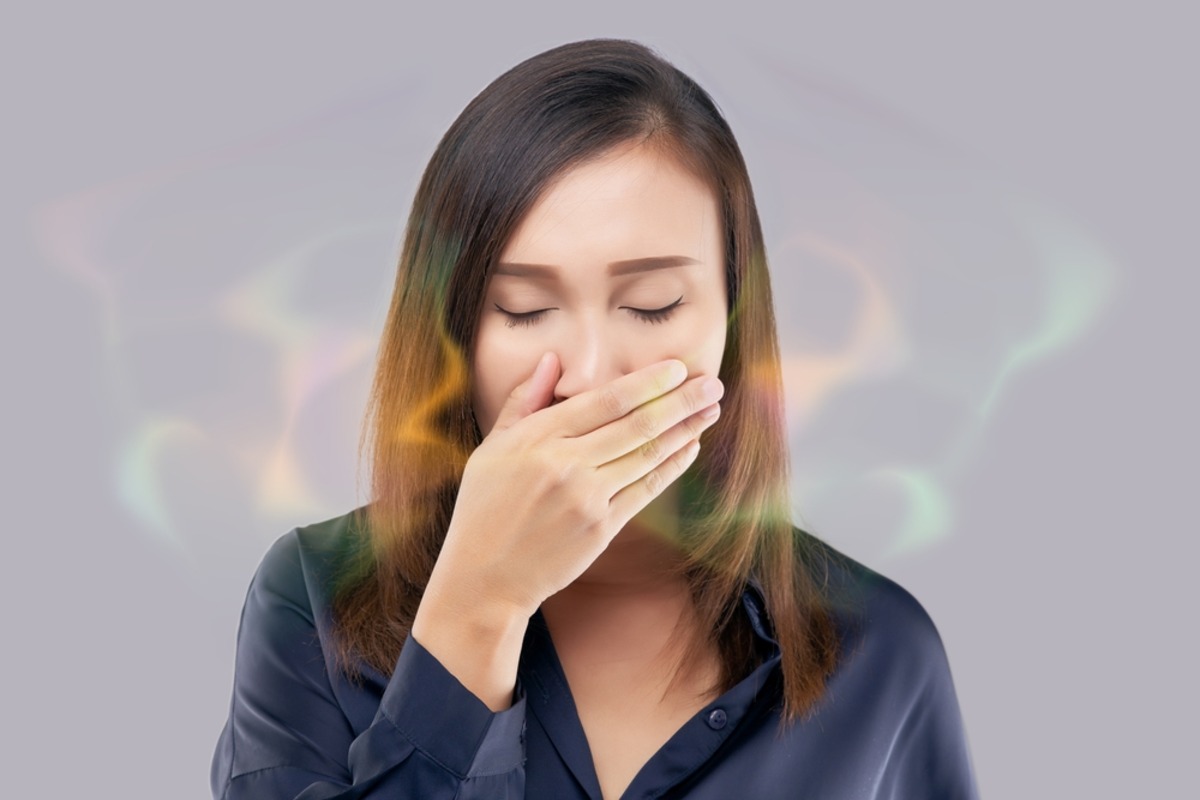
Bad breath can be embarrassing. It affects confidence and interactions. Understanding its causes is the first step. Many solutions exist for this problem. Don’t let it hold you back.
The Source of Odor
Bacteria in your mouth cause odors. The source of odor is often microscopic. These tiny organisms break down food particles. They release volatile sulfur compounds. These compounds smell unpleasant. Your tongue, gums, and teeth harbor them. Poor oral hygiene increases their number.
Food gets trapped in crevices. Bacteria thrive in these areas. Your mouth can become a breeding ground. This leads to persistent bad breath. Saliva plays a cleaning role. Less saliva means more odor.
Poor Oral Hygiene Habits
Not brushing regularly causes issues. Poor oral hygiene habits contribute greatly. Food particles remain in your mouth. They get stuck between teeth. Bacteria feast on these remnants. Brushing removes plaque and food. Flossing cleans between teeth.
Skipping these steps allows buildup. Plaque hardens into tartar. This creates more rough surfaces. Bacteria stick to these easily. A dirty tongue also holds bacteria. Brushing your tongue is important. Good hygiene is fundamental for fresh breath.
Food and Drink Choices
Certain foods and drinks affect breath. Food and drink choices can be culprits. Garlic and onions are well-known offenders. Their compounds enter your bloodstream. They are then released through your lungs. This creates a distinct odor.
Coffee and alcohol can dry your mouth. A dry mouth encourages bacterial growth. Sugary drinks also feed bacteria. Dairy products can leave residues. Limit these items if breath is an issue. Rinse your mouth after eating.
Dry Mouth Challenges
Saliva cleans your mouth naturally. Dry mouth challenges promote bad breath. It washes away food particles. It neutralizes acids from bacteria. Less saliva means more odor-producing germs. This condition is called xerostomia.
Medications can cause dry mouth. Antihistamines and antidepressants are common. Breathing through your mouth also dries it. Certain medical conditions lead to it. Stay hydrated by drinking water. Use saliva substitutes if needed.
Gum Disease and Its Effects
Gum disease harbors odor-causing bacteria. Gum disease and its effects are significant. It’s an infection of the gums. Bacteria accumulate below the gum line. Pockets form where food gets trapped. These areas are hard to clean.
Gums may become inflamed and bleed. This creates a perfect environment for odor. Periodontitis is severe gum disease. It can cause tooth loss. Treating gum disease improves breath. See your dentist regularly for checks.
Tongue Coating Troubles
Your tongue surface can hold bacteria. Tongue coating troubles contribute to odor. A white or yellowish film can appear. This coating is a bacterial colony. It releases sulfur compounds. Brushing your tongue helps remove it.
A tongue scraper is even more effective. It gently scrapes away the film. Make this part of your routine. It significantly reduces odor. Clean your tongue every time you brush. This simple step makes a difference.
Mouth Infections and Odor
Infections in the mouth cause bad breath. Mouth infections and odor are linked. Tooth decay forms cavities. Bacteria multiply inside these holes. Abscesses are pus-filled infections. They release foul-smelling discharge.
Surgical wounds in the mouth can get infected. Oral thrush is a fungal infection. All these produce unpleasant odors. Treating the underlying infection is key. See your dentist for prompt care. Don’t let infections linger.
Other Medical Conditions
Sometimes, bad breath signals other issues. Other medical conditions can be involved. Respiratory tract infections cause odor. Sinusitis, bronchitis, or pneumonia. Tonsil stones can trap bacteria. Diabetes can lead to fruity breath.
Liver or kidney disease can cause distinct odors. Gastric reflux brings stomach acids up. These conditions need medical attention. Your doctor can diagnose and treat them. Don’t self-diagnose severe issues.
Tobacco Product Use
Smoking and chewing tobacco cause bad breath. Tobacco product use is a major culprit. They leave chemicals in the mouth. These chemicals have a strong odor. Tobacco also dries out your mouth. This further encourages bacterial growth.
It also increases gum disease risk. Smokers often have worse breath. Quitting tobacco improves breath significantly. It also boosts overall health. This is a powerful step to take.
Denture Care Importance
Dirty dentures can trap bacteria. Denture care importance is high. Food particles get caught in them. Bacteria thrive on these surfaces. Remove dentures nightly for cleaning. Brush them thoroughly with a special cleaner.
Soak them in a cleaning solution. Rinse them well before reinsertion. Poorly fitting dentures can irritate gums. This creates more places for bacteria. Proper denture hygiene prevents odor. It keeps your mouth healthier.
Tonsil Stones (Tonsilloliths)
Tonsil stones are small, white lumps. Tonsil stones (tonsilloliths) smell very bad. They form in the crypts of your tonsils. Food, bacteria, and mucus get trapped. They harden and become foul-smelling. They can sometimes be dislodged with gargling.
A doctor might remove persistent ones. They contribute to chronic bad breath. Not everyone gets them, but they’re common. Check your tonsils if breath persists.
Simple Breath Remedies
Simple actions can improve breath fast. Simple breath remedies offer quick fixes. Chew sugar-free gum after meals. It increases saliva flow. Rinse with an antibacterial mouthwash. Avoid alcohol-based mouthwashes. They can dry your mouth.
Drink plenty of water throughout the day. Munch on crisp fruits and vegetables. Apples and carrots can clean teeth. Parsley contains chlorophyll, a natural deodorizer. These are temporary solutions. They don’t fix underlying causes.
Professional Dental Cleaning
Regular dental cleanings are essential. Professional dental cleaning removes buildup. Your hygienist removes plaque and tartar. These are breeding grounds for bacteria. They reach areas you might miss. Cleanings improve overall oral health.
They help prevent gum disease. Visit your dentist twice a year. This keeps your mouth fresh and clean. It’s a vital part of prevention. Don’t skip these important appointments.
Combatting bad breath involves consistent oral hygiene, mindful eating, proper hydration, and addressing any underlying health concerns with your dentist or doctor for lasting freshness.
